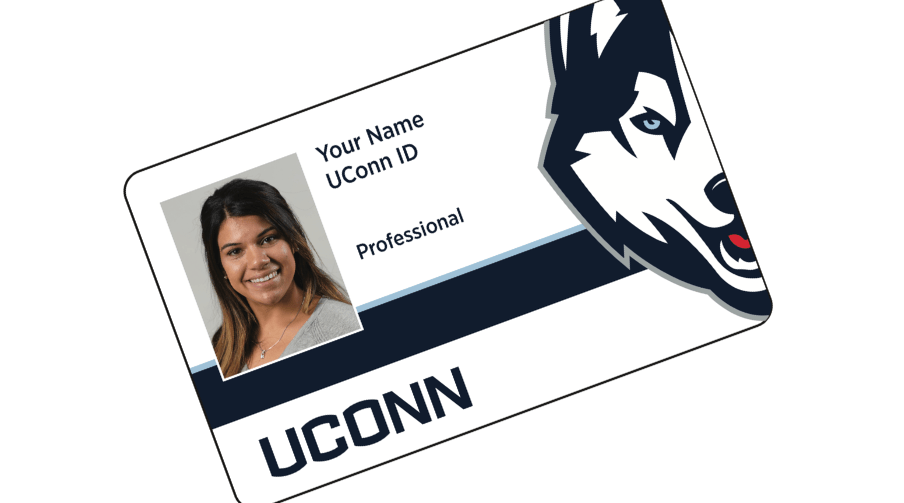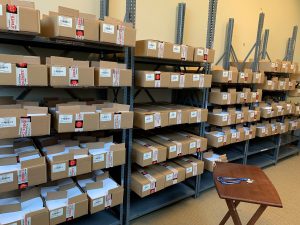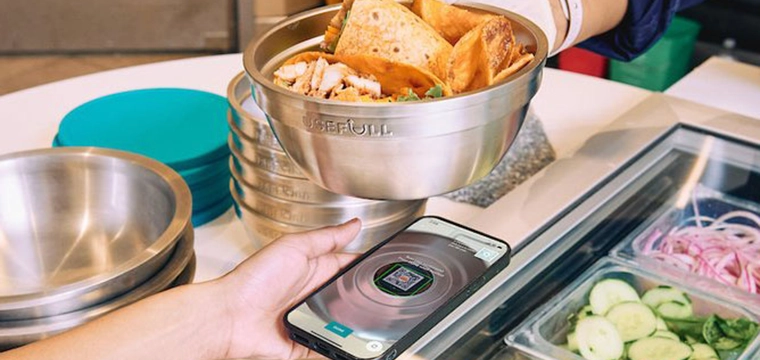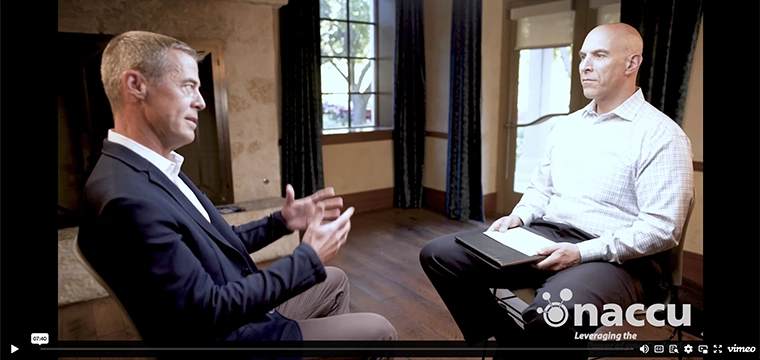
Husky One Card office works with ColorID to reissue 33,000+ cards
The University of Connecticut is issuing new campus cards, after making the decision to recard its entire population over the summer. CR80News recently caught up with UConn and ColorID, who assisted on the project, to talk about the new Husky One Card and the recarding process.
“In a nutshell, we chose to recard for security,” says Stephanie Kernozicky, Director of One Card Office at the University of Connecticut. “We wanted to ensure all cards and access points are appropriately secure.”
Kerzonicky and the Husky One Card team opted to do a full recard of the university, including regional campuses, all at once. “We started with employees two weeks before the students because there were fewer of them, and as it was during the summer, more employees than students were on campus,” she explains.
“We are currently at over 80% student card pickup rate and I greatly attribute that to the fact that our new Recreation Facility was opened this Fall when students returned, and they required the students have their new card to enter,” adds Kerzonicky. “It was great timing.”

UConn students arrive at the handout event to receive their new Husky One Cards.
UConn chose to issue a tri-technology card, leveraging magstripe, proximity, and HID Seos to cover the transition period. “As soon as possible, we will drop the proximity chip,” says Kernozicky. “The initial batch from the recard project were all pre-printed, but all cards after that are being printed in-house using retransfer printers and HID’s FARGO Connect.”
The previous ID environment at UConn is the reason for packing so many technologies into a single credential.
"In a nutshell, we chose to recard for security. We wanted to ensure all cards and access points are appropriately secure."
“We used to only issue magstripe cards to most cardholders, unless they needed a proximity card. As time went on, more and more people requested this,” explains Kernozicky. “Therefore, with the new card, everyone already has all credentials and technologies, so we don’t have to worry about swapping out cards.”
UConn’s recarding was a sizeable project. At the time of publication, UConn will have issued more than 33,300 of the new Husky One Cards to students, faculty and staff.
To assist with the recarding, UConn worked with identification technology solutions provider, ColorID. The company offers a full range of recarding services from pre-printing and card production, through to quality control and distribution with custom card packaging and sorting.
UConn leveraged the full recarding support and services of ColorID as it embarked on its campus-wide recarding event.
“UConn choose ColorID for the full recard project, from suppling the base HID SEOS cards, to the printing/encoding work, through to fulfillment and delivery,” says Mark Degan, director of corporate marketing at ColorID. “We provided UConn with 41,000 cards, of which 31,367 were encoded and delivered by ColorID.”
ColorID provided UConn with timelines, budgetary estimates, and costing for:
One of the first steps was to present UConn with a full list of all available technologies, services, and support options for a multi-campus recard, says Degan. “We talked about printing and programming of cards locally or off-site, as well as card distribution details.”
As part of its services, ColorID also visited UConn in person to discuss important issuance details. “We talked over vital things like card technology and compatibility, supply chain and distribution channels, and site requirements for the recarding,” explains Degan.
HID programmed the SEOS & Prox chips, while ColorID read the card data to create a cross reference list for UConn, printed all the variable information, and contracted with a third-party vendor for packaging and fulfillment.
For the UConn project, the new Husky One Cards were to be fixed to carrier slips and placed in individual envelopes before being shipped to the university unsealed so that personnel on campus could conduct a handout event.
That distribution process would entail UConn verifying the cards by removing the carrier slip with the card from the envelope, removing the card and scanning it to ensure it was properly encoded. The cards were then reaffixed to the carrier slip and envelope, before ultimately being given to the student.
“We were pretty adamant we needed the mailer envelopes because we wanted the option to send any employee cards to their internal mailing address if they couldn’t pick up in person,” says Kerzonicky. “We also wanted cardholders to know why we were doing the re-card and what to expect from their new card.”
“We worked with CBORD to be able to swipe the cards through a mobile reader on-site, which would activate the new card and deactivate the old one,” adds Kerzonicky.

UConn's newly printed and delivered Husky One Cards.
ColorID contracts with a secure facility that handles Visa and other major credit cards for this type of fulfillment process. The finished product resembles that of a new credit card that arrives in the mail.
“This project was certainly not our largest recarding job, however it was a heavier lift due to the added fulfillment steps,” says Degan. “Typically the cards would go straight to the customer after the recard, but UConn’s project was unique because the cards needed to be placed in individual envelopes and organized based on unique cardholder classifications and identifiers.”
On the ColorID side of the operation, cards were printed and sorted in a specific order before being sent to be packaged.
“To keep things in order we print a sequential identifier number on the back of the card so that when carrier paper is being printed everything stays in order,” Degan explains. “The packaging facility also prints the envelopes with a similar set of identifiers like home address, they then apply cards to carrier paper via glue, trifold it and then put them into envelopes.”
“We offer the option to also include postage and send the cards directly to students, but UConn planned to physically hand the cards to students and manually verify each credential,” says Degan. “They really went the extra mile to add that measure of control to the process.”
"ColorID played a significant role. They worked with us to pre-print and personalize almost all our cards, including proper encoding and credential assignment."
ColorID routinely offers packaging with carrier slips and envelopes, but it’s a small group of clients that ultimately spring for this option. “It’s ideal for campuses that may not want to get really hands on,” says Degan. “It’s also not a terribly expensive add on at around $0.50 per card.”
Despite being a full campus recarding event, Degan says that the entire project with UConn went off without a hitch. A testament to both the team at ColorID and the UConn One Card Office.
“The deadlines were tight on this project, and it was imperative that our recarding was in perfect order to make things run smoothly with the fulfillment center,” says Degan. “But we worked through all those challenges directly with out partners at UConn, and because of that collaboration and attention to detail, everything came together perfectly.”
“ColorID played a significant role in that they worked with us to pre-print, with personalization, almost all our cards. This included proper encoding and credential assignment,” says Kerzonicky. “There is no way we would have been able to do a full university recard if we tried to print all those cards in our One Card Office.”




